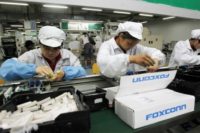10 “musts” to increase employee engagement

 Achieve results
Achieve results
Engagement is more than a feeling, survey number, or a YouTube happy dance. We engage in actions directed towards results. The first key to consider when acting to increase employee engagement is what results are you working to achieve and how can you involve all employees in formulating those results or achieving those results? Powerful results matter to managers, organizations, employees, and customers.
Path progress
The most overlooked source of engagement and motivation is to experience progress. Recent research by Teresa Amabile and Steve Kramer has demonstrated that progress is the single biggest key to motivation and engagement for knowledge workers. Learn how to structure work for progress and especially to guard against the demoralizing and disengaging experience of setbacks.
Maximize performance
Performance is anything worthy of your attention. How do you make key performances worthy of employee’s attention and how do you offer feedback that is actually heard and acted upon by employees? We are witnessing the early stages of a significant fusion of performance management and employee engagement that may address some of the gaps we have experienced in attempting to have performance management do a better job of improving performance.
Foster recognition
Without recognition our workplaces are void of the human element. Are you fully letting employees know that you see them, you are thinking of them and you both recognize and appreciate them. Authentic recognition is so much more than an annual gala or occasional gift card for good behavior. Recognition is social, strategic, and powerful. Recognition is the “re-thinking” of engagement in our everyday interactions and recognition for progress creates a strong multiplier for motivation and engagement.
Build relationships
We need to focus on the two “R’s” of engagement, results and relationships. How do our efforts achieve results while also building relationships?. Our brains are wired for the social element of work and in some ways all managers are becoming new versions of “social workers.” While our staff may have a locus of engagement on tasks we need to ensure that we have a strong locus of engagement on people.
Enliven energy
The raw material of engagement is energy. It takes energy to engage and authentic engagement contributes to our energy. Energy comes in a variety of forms: mental, emotional, physical, organizational, and spiritual. Spiritual energy is the energy invested in something greater than ourselves and when you look closely at work and managing people it is always something greater than ourself or there would be no need for managers. We must strive towards mastery of physical, mental, and emotional energy.
Leverage strengths
Engagement is strong stuff. When you know your strengths, live your strengths, and leverage your strengths in the service of others you will have an increase in engagement. To bring out the strengths of others we must be aware of our own strengths. Powerful managers “spot” employees’ strengths and make strength training a daily endeavor.
Make meaning
For work to sustain and enrich people it must be meaningful. Those who have a why to work can bear almost any how and a sense of meaningful work instills a strong and rich intrinsic motivation. Progress, when it is meaningful, can be one of the best events of our day.
Master moments
Engagement resides in the moment. Learn to master moments; from high quality interactions and 45-second engaging conversations to the power to transform interruptions into touch points. When we balance challenge and skills we enter the flow zone as we dwell and work within the moment. Working in the moment also reduces stress. As Stephen Rechtschaffen stated: “there is no stress in the present moment.”
Enhance well-being
We need to find wellbeing inside of work. There are things we can do outside of work but how we promote and enhance well-being within work is becoming increasingly important as mobile devices makes work portable and 24/7. We must eliminate toxic workplace poisoned with a lack of respect or mutuality. We must create a profound wellbeing where people leave work enlivened and enriched rather than depleted and deadened.
Looking for a reprint of this article?
From high-res PDFs to custom plaques, order your copy today!






